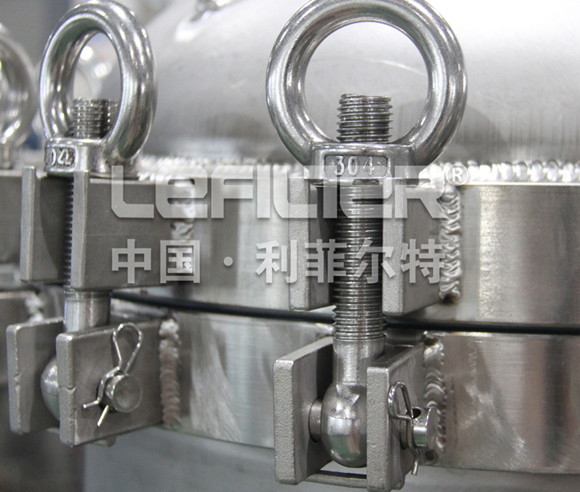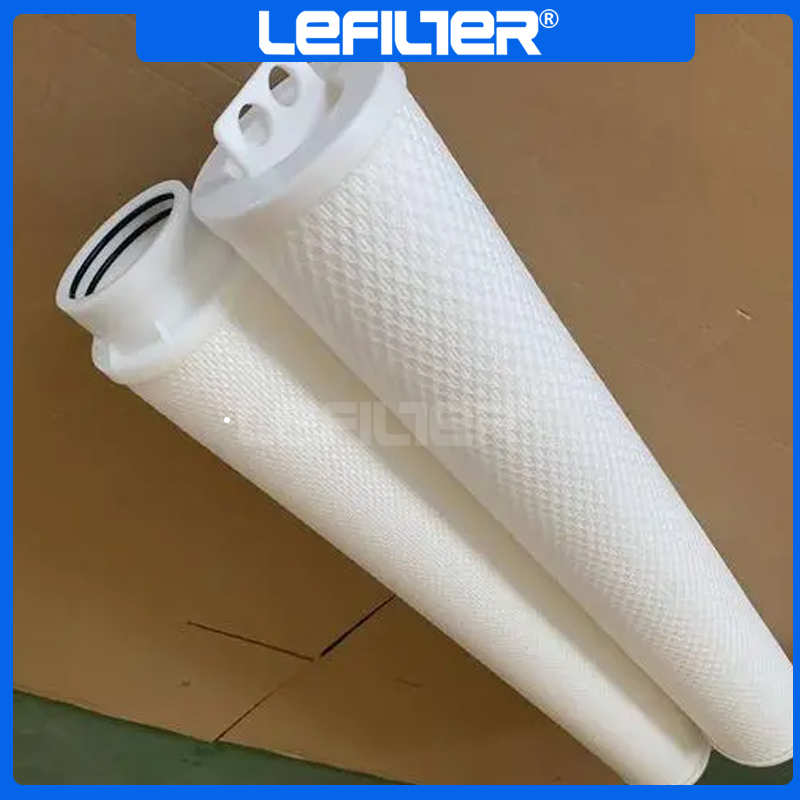Cartridge Filter Housing in Power Generation
DATE:2024-10-19 Number of views: 1 Source:dongwenhui
In the power generation sector, maintaining the efficiency and reliability of turbines and generators is paramount. These systems rely on various fluids, including water, oil, and coolants, which must be free from contaminants to ensure optimal performance and longevity. Cartridge filter housings serve as essential components in this filtration process, helping to protect equipment and maintain operational efficiency. We explore the role of cartridge filter housings in power generation, highlighting their functions, applications, and benefits.

Understanding Cartridge Filter Housing
Cartridge filter housing is a structure designed to contain one or more filter cartridges that purify fluids by removing particulates, sediments, and other impurities. These housings can vary in size, material, and configuration, allowing them to be tailored to specific filtration needs in power generation applications.
Typically constructed from durable materials such as stainless steel or high-density polyethylene, cartridge filter housings are engineered to withstand high pressure and harsh conditions often present in power plants. The design ensures easy access for filter replacement and maintenance, which is crucial for uninterrupted operations.
Importance of Fluid Filtration in Power Generation
Power generation relies heavily on various fluids for efficient operation. For instance, water is used for cooling, while oil lubricates moving parts within turbines and generators. The presence of contaminants in these fluids can lead to serious issues, including equipment wear, reduced efficiency, and even catastrophic failures.
Filtration plays a critical role in ensuring that these fluids remain clean. By effectively removing particulates, sediments, and other harmful substances, cartridge filter housings help safeguard the integrity of power generation systems. This not only prolongs the lifespan of equipment but also minimizes maintenance costs and downtime.

Applications in Turbine Filtration
In power plants, turbines are essential for converting thermal energy into mechanical energy, which is then used to generate electricity. The efficiency of turbines can be significantly affected by the quality of the fluids used.
Cartridge filter housings are employed in various stages of turbine filtration. For example, during the cooling process, water used to dissipate heat must be free of impurities to prevent corrosion and scaling on turbine components. Similarly, oil used in lubrication systems must be filtered to remove particles that could cause abrasion and wear.
By ensuring that the fluids in turbines are properly filtered, cartridge filter housings help maintain optimal performance and efficiency, contributing to the overall reliability of power generation operations.
Enhancing Generator Performance
Generators, like turbines, rely on clean fluids for optimal operation. The oil used in generators must be filtered to remove contaminants that can lead to overheating and reduced efficiency. Cartridge filter housings provide a reliable means of ensuring that the oil remains clean and free from particulates.
In addition to lubricating oil, generators also require cooling systems that rely on water. Similar to turbines, any impurities in this water can lead to fouling and scaling, ultimately affecting performance. By using cartridge filter housings to filter both oil and water, power generation facilities can enhance generator efficiency and longevity.

Contaminant Removal and Filtration Efficiency
Cartridge filter housings are capable of removing a wide range of contaminants from fluids, ensuring that only clean substances enter critical systems. Some common contaminants that cartridge filters can eliminate include:
Sediments and Particulates: Larger particles such as dust, dirt, and debris can be effectively removed in the initial filtration stages.
Metallic Contaminants: Small metal particles resulting from equipment wear can be captured, preventing damage to sensitive components.
Water and Moisture: In oil systems, moisture can lead to oxidation and sludge formation. Cartridge filters can help remove excess water.
Chemical Contaminants: Depending on the filtration media used, certain cartridge filters can also adsorb harmful chemicals and other impurities.
The effectiveness of cartridge filter housings in contaminant removal is critical for maintaining the efficiency and reliability of power generation systems.
Cost-Effectiveness and Maintenance
Implementing cartridge filter housings in power generation facilities can be a cost-effective solution for maintaining fluid quality. Although there is an upfront cost for the filtration system, the long-term savings associated with reduced maintenance, fewer equipment failures, and increased operational efficiency often outweigh these initial expenses.
Regular maintenance of cartridge filters is essential for ensuring consistent performance. The design of cartridge filter housings allows for easy access to replace filters, minimizing downtime and operational disruptions. Scheduled inspections and timely replacements contribute to the ongoing efficiency of power generation systems.

Environmental Considerations
In the context of environmental sustainability, power generation facilities are increasingly focusing on minimizing their ecological impact. Proper filtration of fluids helps reduce waste and prevent contamination of water sources.
By ensuring that lubricants and coolants are free from contaminants, cartridge filter housings contribute to responsible waste management practices. Clean fluids can be reused or disposed of in a manner that minimizes environmental harm, aligning with sustainable practices in the power generation sector.
Future Trends in Power Generation Filtration
The power generation industry is continually evolving, driven by advancements in technology and the need for greater efficiency and sustainability. Future trends in filtration systems may include:
Advanced Filtration Technologies: Innovations such as nanofiltration and membrane filtration may become more prevalent, offering enhanced contaminant removal capabilities.
Smart Filtration Systems: The integration of IoT technology could allow for real-time monitoring of filter performance and fluid quality, enabling predictive maintenance and reducing downtime.
Sustainable Materials: As environmental considerations grow, there may be a shift towards using more sustainable and recyclable materials in filter housing construction.
As these trends continue to develop, cartridge filter housings will remain a vital component in the pursuit of efficient, reliable, and sustainable power generation.

Conclusion
Cartridge filter housings play an essential role in the power generation sector, ensuring that the fluids used in turbines and generators remain clean and free from contaminants. By effectively removing impurities, these systems enhance the performance and reliability of power generation equipment, while also contributing to cost savings and environmental sustainability. As the industry evolves, the importance of reliable filtration solutions will only grow, ensuring that power generation remains efficient and responsible.
FAQ
What is a cartridge filter housing?
A cartridge filter housing is a container designed to hold filter cartridges that remove contaminants from fluids in various applications, including power generation.Why is fluid filtration important in power generation?
Fluid filtration is crucial for removing harmful contaminants that can lead to equipment wear, reduced efficiency, and system failures in turbines and generators.What types of fluids are typically filtered in power generation?
Commonly filtered fluids include water for cooling, lubricating oil for turbines and generators, and other process fluids.How do cartridge filters enhance turbine and generator performance?
By removing contaminants from fluids, cartridge filters help maintain optimal operation, prevent corrosion and scaling, and prolong the lifespan of equipment.How often should filter cartridges be replaced in power generation systems?
Replacement frequency depends on usage and fluid quality, but regular inspections and timely replacements are essential for consistent performance.What materials are cartridge filter housings made from?
Cartridge filter housings are typically constructed from durable materials like stainless steel or high-density polyethylene to withstand harsh conditions.Can cartridge filter housings be used for multiple applications?
Yes, cartridge filter housings can be designed for various applications within power generation, including filtration for cooling water, lubricating oil, and other fluids.What are the environmental benefits of using cartridge filter housings?
Effective filtration helps prevent contamination of water sources and allows for responsible waste management, contributing to sustainable practices in the power generation sector.

Industry Solutions
Pure Water /Ultra Pure Water System


